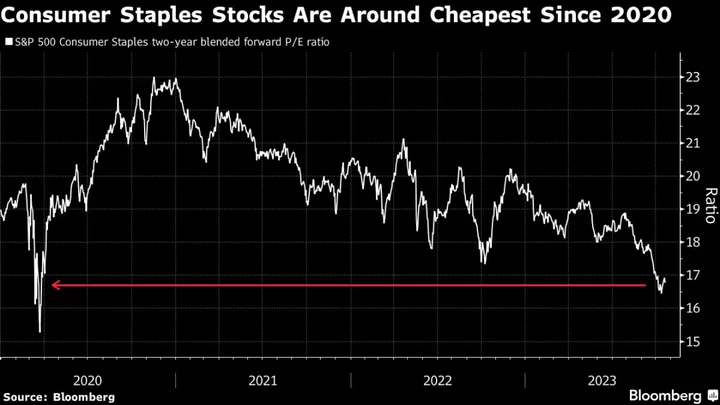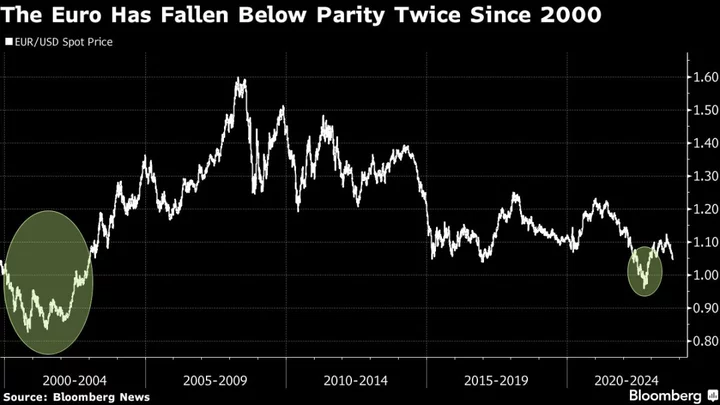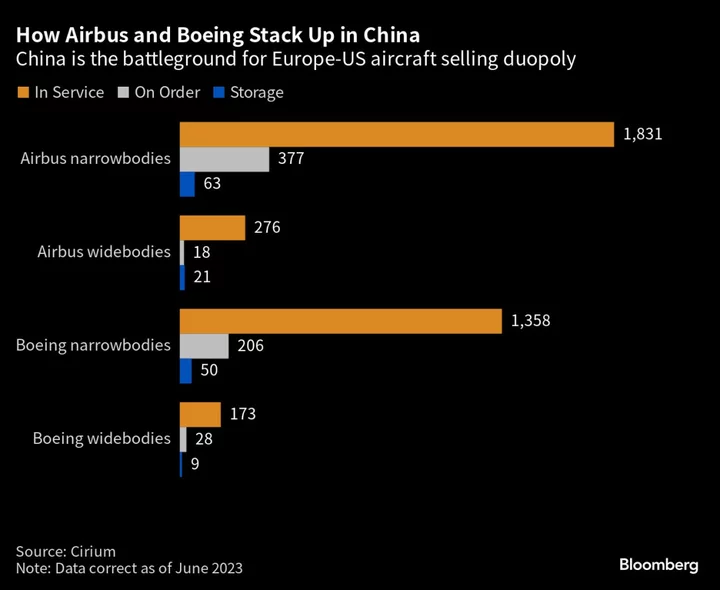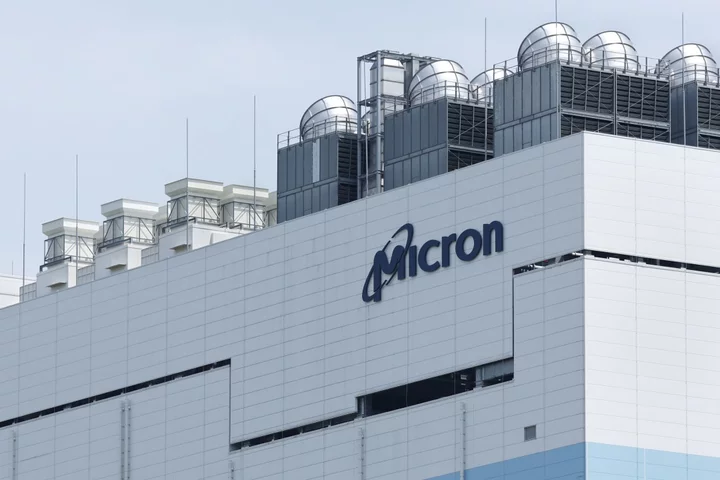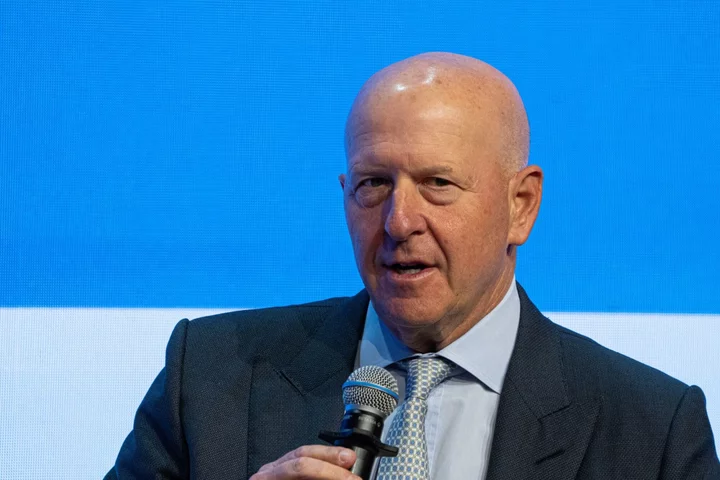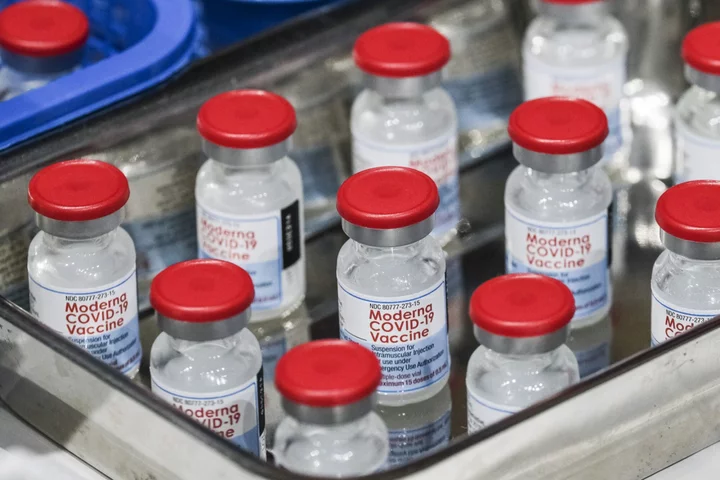The stocks rout fueled by the frenzy around a new class of weight-loss drugs is starting to make companies that feed the appetites of consumers look a lot more appealing, according to RBC Capital Markets.
Iconic names like Hershey Co., Coca-Cola Co. along with pretzel maker Utz Brands Inc. and Napa Valley wine producer Duckhorn Portfolio Inc. have notched double-digit losses this year amid worries that people taking GLP-1 drugs — a class of medicines used to treat diabetes and obesity — will cut back on indulgences. The “GLP-1 bear thesis has gone overboard” leaving valuations cheap and upping the appeal of consumer staples stocks, according to RBC analysts including Nik Modi.
“While we are by no means out of the woods when it comes to consumer pressures, we believe the sector is beginning to look more attractive given GLP-1 sentiment,” the analysts wrote in a note Friday, adding that macroeconomic concerns, a slower rebound in unit volumes, geopolitical risks, and rising interest rates have also contributed to the slump this year.
Consumer staples stocks in the S&P 500 Index suffered their worst-one day drop since January earlier this month after a warning from Walmart Inc. that the retailer was already seeing an impact on food-shopping demand from the medicines. While the gauge has recovered since then, the sector has significantly underperformed the broader index in 2023.
The large-cap staples index — which includes the likes of PepsiCo Inc. and Oreo cookies maker Mondelez International Inc. — is around the cheapest since the onset of the Covid-19 pandemic in early 2020 on a two-year forward price-to-earnings basis.
Read more: Ozempic Threatens Profits at Food and Beverage Makers Worldwide
A global team of RBC analysts said on Thursday that the current concerns about the drugs’ reach into certain parts of health-care and other sectors are “likely exaggerated and perhaps peaking.” They pointed to doctor feedback suggesting evidence of intolerance in some patients, signs of lower compliance versus other therapies, and the affordability of the drugs.
Meanwhile, consumer staples companies have attempted to ease investors’ concerns. PepsiCo on its recent earnings call said the impact of GLP-1s on its business has been “negligible” so far. Conagra Brands Inc. said it’s “way too early to tell” what the impact of the appetite-suppressing drugs is going to be, and that a potential change in eating habits driven by GLP-1s would take many years to materialize.
RBC was not the only analyst defending the consumer staples sector. On Thursday, TD Cowen analyst Robert Moskow wrote that he sees no signs of volume compression from GLP-1 drugs in his retail-tracking data, yet. The selloff in beverage stocks in particular is overblown, he said, given most beverage consumption is for hydration rather than satiety.
The RBC analysts led by Modi added that fears around other industry disruptors in the consumer staples space have often proven overstated. Take the case of Beyond Meat Inc., which once provoked questions around the future of traditional meat. Today the company and its plant-based peers are struggling with declining sales. In another example, Amazon.com Inc.’s 2017 purchase of Whole Foods Market Inc. appeared set to upend the grocery shopping experience, yet they point out, Walmart remains the industry leader.
Investors can expect to hear more on the topic from food and beverage companies next week, with Coca-Cola reporting Oct. 24, and Keurig Dr Pepper Inc. and Hershey on Thursday.
(Updates with additional commentary in second paragraph.)

